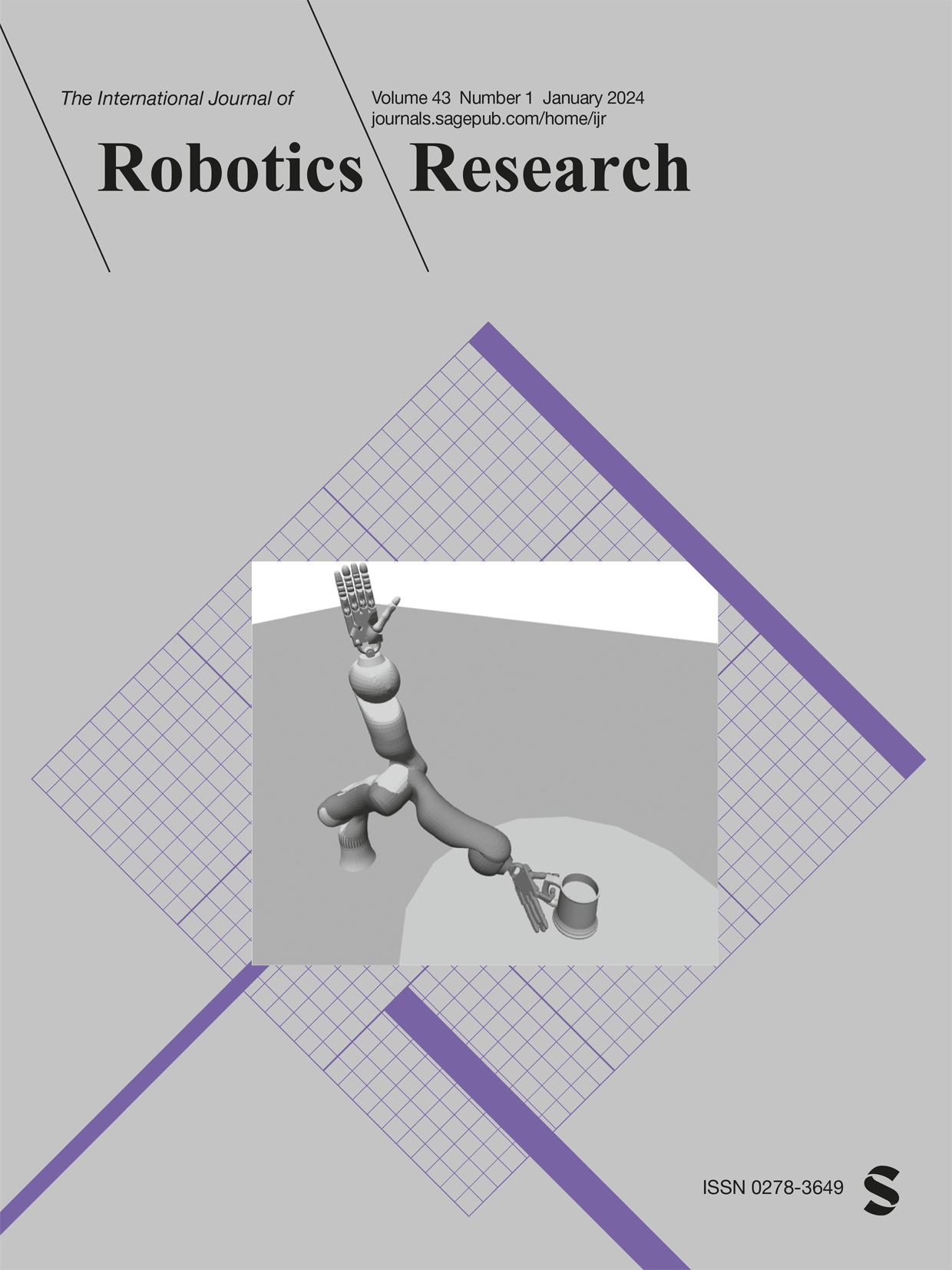基于传感器的机器人控制的基本限制
IF 5
1区 计算机科学
Q1 ROBOTICS
引用次数: 0
摘要
我们的目标是开发理论和算法,以确定机器人传感器对给定任务的性能的基本限制。为了实现这一点,我们定义了一个量,该量捕获传感器提供的与任务相关的信息量。使用信息论中广义Fano不等式的一个新版本,我们证明了这个量为一步决策任务提供了最高可实现预期回报的上限。然后,我们通过动态编程方法将这一界限扩展到多步骤问题。我们提出了数值计算结果边界的算法,并在三个例子上演示了我们的方法:(i)部分可观测马尔可夫决策过程文献中的熔岩问题,(ii)具有连续状态和观测空间的例子,对应于机器人捕捉自由落体,以及(iii)使用具有非高斯噪声的深度传感器来避障。我们通过比较我们的上限和可实现的下限(通过综合或学习具体的控制策略计算),证明了我们的方法对这些问题的可实现性能建立强大限制的能力。本文章由计算机程序翻译,如有差异,请以英文原文为准。
Fundamental limits for sensor-based robot control
Our goal is to develop theory and algorithms for establishing fundamental limits on performance imposed by a robot’s sensors for a given task. In order to achieve this, we define a quantity that captures the amount of task-relevant information provided by a sensor. Using a novel version of the generalized Fano's inequality from information theory, we demonstrate that this quantity provides an upper bound on the highest achievable expected reward for one-step decision-making tasks. We then extend this bound to multi-step problems via a dynamic programming approach. We present algorithms for numerically computing the resulting bounds, and demonstrate our approach on three examples: (i) the lava problem from the literature on partially observable Markov decision processes, (ii) an example with continuous state and observation spaces corresponding to a robot catching a freely-falling object, and (iii) obstacle avoidance using a depth sensor with non-Gaussian noise. We demonstrate the ability of our approach to establish strong limits on achievable performance for these problems by comparing our upper bounds with achievable lower bounds (computed by synthesizing or learning concrete control policies).
求助全文
通过发布文献求助,成功后即可免费获取论文全文。
去求助
来源期刊
CiteScore
22.20
自引率
0.00%
发文量
34
审稿时长
6-12 weeks
期刊介绍:
The International Journal of Robotics Research (IJRR) has been a leading peer-reviewed publication in the field for over two decades. It holds the distinction of being the first scholarly journal dedicated to robotics research.
IJRR presents cutting-edge and thought-provoking original research papers, articles, and reviews that delve into groundbreaking trends, technical advancements, and theoretical developments in robotics. Renowned scholars and practitioners contribute to its content, offering their expertise and insights. This journal covers a wide range of topics, going beyond narrow technical advancements to encompass various aspects of robotics.
The primary aim of IJRR is to publish work that has lasting value for the scientific and technological advancement of the field. Only original, robust, and practical research that can serve as a foundation for further progress is considered for publication. The focus is on producing content that will remain valuable and relevant over time.
In summary, IJRR stands as a prestigious publication that drives innovation and knowledge in robotics research.

 求助内容:
求助内容: 应助结果提醒方式:
应助结果提醒方式:


